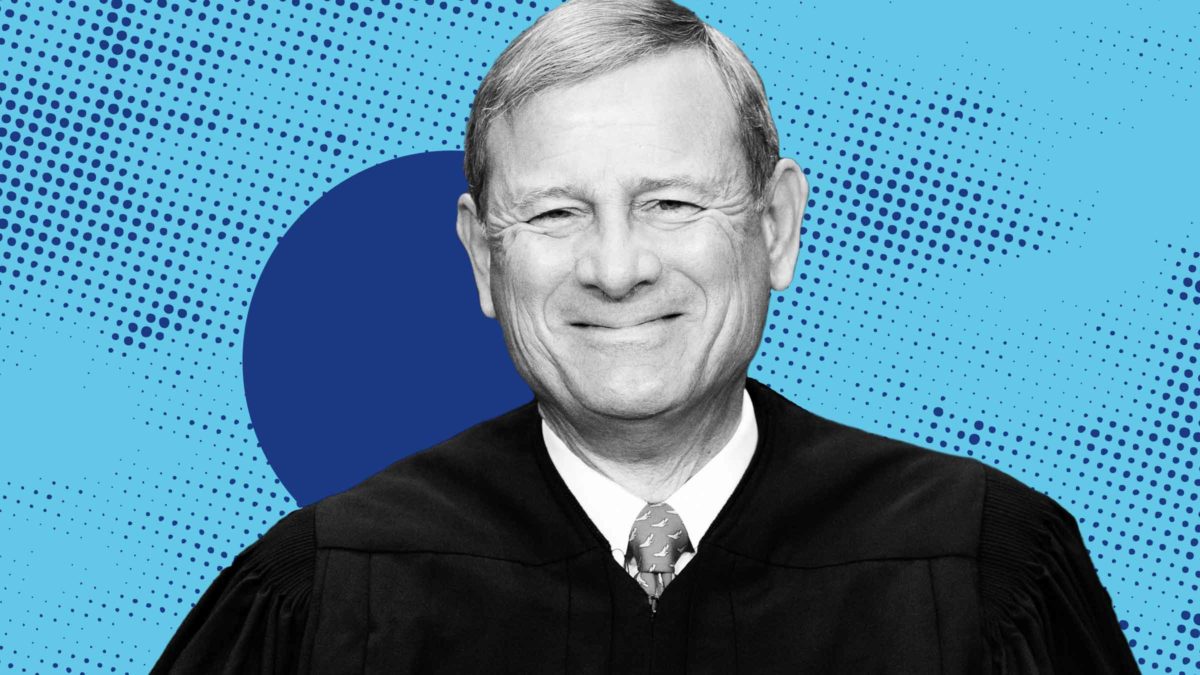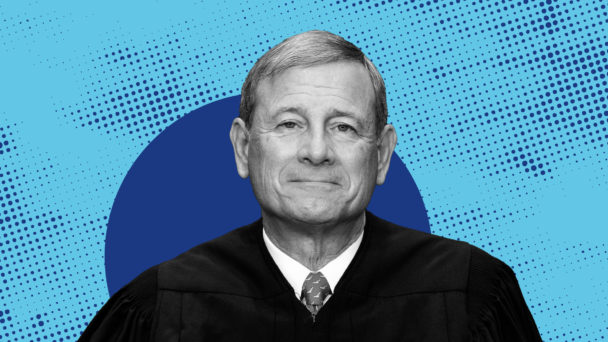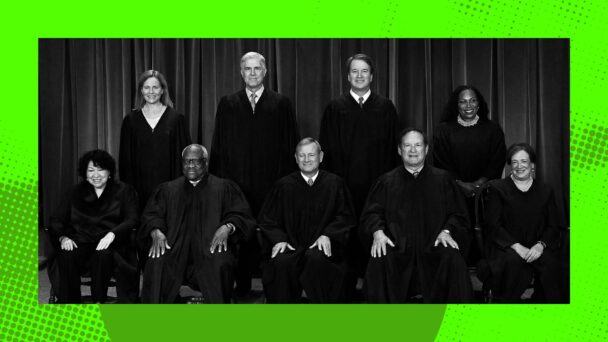The biggest obstacle to enforcing the Constitution’s prohibition on racial discrimination in voting is the Supreme Court. Since 1965, Congress’s primary vehicle for implementing this constitutional command has been the Voting Rights Act; the Court, urged on by Republican elected officials, has been chipping away at the law’s promises ever since. The justices dealt particularly debilitating blows to the law in Shelby County v. Holder (2013) and Brnovich v. Democratic National Committee (2021). And now, yet another lawsuit is coursing its way through federal courts that threatens to kill what’s left of it.
The U.S. Court of Appeals for the Eleventh Circuit is currently considering Pendergrass v. Raffensperger, a challenge to the VRA ostensibly arising out of redistricting in Georgia. A closer look at the arguments made by challengers to the Act, though, suggests that much of the case arises from the Supreme Court itself: Republican litigants are attacking the Voting Rights Act in the way the Republican justices advertised that they should the last time they attacked the Voting Rights Act.
Back in 2021, groups representing Georgia voters sued Secretary of State Brad Raffensperger, alleging that the state’s new electoral maps diluted the voting strength of Georgians of color in violation of Section 2 of the Voting Rights Act. The 2020 Census showed that Georgia’s growth over the preceding decade was entirely attributable to its minority population, yet there was no corresponding increase in the number of majority-Black congressional and legislative districts. Alongside its considerations of other contextual factors, like persistent racial polarization in voting and discrimination against Black voters in the state, the trial court specifically concluded that the GOP-led redistricting process had left Black voters in west-metro Atlanta with less of an opportunity to participate in the political process.
In his appeal to the Eleventh Circuit, Raffensperger not only argued that the map did not violate the VRA, but also challenged the Voting Rights Act as unconstitutionally out-of-date. “Just because” Section 2 “was justified when it was enacted in 1965—or when it was last amended in 1982—does not mean it remains so today,” he wrote. The relevant question, Raffensperger insists, is whether its “extraordinary measures…continue to satisfy constitutional requirements.”
If that sounds familiar to you, it’s because he’s quoting Chief Justice John Roberts’s majority opinion in Shelby County v. Holder. In Shelby, Roberts wrote that “the Voting Rights Act of 1965 employed extraordinary measures to address an extraordinary problem,” but opined that because “our country has changed,” the legislation no longer spoke “to current conditions.” Roberts pioneered the idea that parts of the Voting Rights Act can age out of constitutionality because, in news to people of color, America is so post-racist now.

What racism is over (Photo by Chip Somodevilla/Getty Images)
Raffensperger also claimed that Section 2 is constitutionally deficient simply because it still exists: “Neither Congress nor anyone else has explained how much time must pass, or what metric must be achieved, before § 2 will stop,” he wrote. This too is lifted from Roberts, who wrote in last year’s affirmative action cases that the race-conscious admissions programs at Harvard and University of North Carolina lacked meaningful endpoints and didn’t give courts clarity on how the programs’ goals could be measured. Similarly, in his concurrence in Allen v. Milligan, another voting rights case, last year, Justice Brett Kavanaugh wrote that Section 2 remedies “cannot extend indefinitely into the future.” Kavanaugh’s argument features prominently in Raffensperger’s brief as well as an amicus brief filed by fourteen Republican-led states: Together, they quote that single Kavanaugh sentence six times.
Perhaps the most audacious claim in Raffensperger’s brief is that there is no private right of action under Section 2, meaning only the Department of Justice, not regular people, can bring suits to enforce the law. This is contrary to decades of practice and precedent, and the public interest—communities actually affected by VRA violations are often best-positioned to initiate VRA lawsuits. Having to rely on DOJ prerogatives would basically make the VRA optional when there’s a Republican in the White House.
Here, too, though, Raffensperger gets an assist, this time from Justice Neil Gorsuch: Raffensperger’s claim is right in line with Gorsuch’s concurrence in Brnovich v. DNC, where the justice suggested that in all previous voting rights cases, the Court had only been assuming the existence of a private right and that it was actually an “open question.” This is, at best, a stretch: The Court ruled nearly thirty years ago in Morse v. Republican Party of Virginia that a private right of action must exist under another section of the VRA because a private right exists under Section 2. So this is less the Court assuming a private right exists and more Gorsuch assuming he can get away with saying it doesn’t exist.
This pattern isn’t unique to the VRA; in conservative-dominated courts, it’s just how constitutional law works. Cuckoo concurrences or just-asking questions dissents from a conservative justice pop up across all sorts of Republican priorities, from cases on abortion to guns. Eventually they become three-justice dissents. And with a little more time—a few strategic retirements here, a few untimely deaths there—they become five-justice majority decisions.
The conservative justices and their allies are engaged in a call-and-response routine where the justices say some new nonsense and then litigants say it back. The ideas that the Voting Rights Act might age out of constitutionality and that Section 2 contains no private right of action were, at best, fringe arguments until the Supreme Court announced they would entertain those ideas as legitimate. While the actual attacks on the VRA are carried out by foot soldiers of the conservative legal movement, they’re taking their marching orders from the Republican justices on the Supreme Court.




